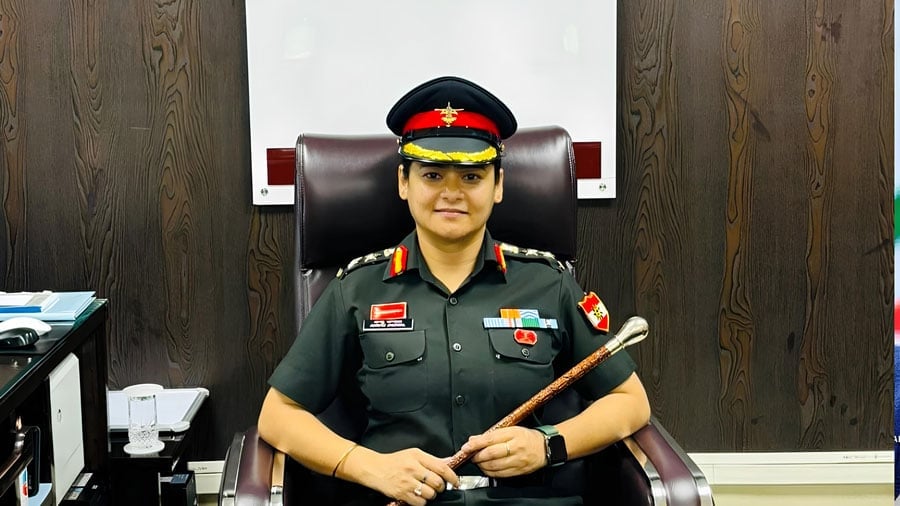Path to Command: Becoming a Commanding Officer in the Indian Army

Achieving the position of a Commanding Officer (CO) in the Indian Army is a significant goal for many military aspirants. The role is crucial, involving leadership, strategic decision-making, and ensuring operational readiness, often in demanding environments. This journey is not solely about attaining rank; it involves embodying qualities that influence both the battlefield and the ethical framework of an organization with a rich historical legacy. This article examines the path to this esteemed position, from initial military training to commanding battalions.
The Indian Army's history, which dates back to the British colonial era, reflects its continuous development, adapting to modern warfare and changing socio-political dynamics. Commanding Officers have been central to this evolution, providing leadership that enhances the Army's effectiveness. Understanding this historical backdrop is vital as it highlights the heritage of command and its inherent responsibilities.
Leadership in the Indian Army has historically been indispensable. Exceptional leaders have been instrumental in inspiring troops to show remarkable courage and dedication, serving as key figures during challenging times, whether in wartime or peacekeeping missions. As the Indian Army ranks among the largest globally, the need for strong, decisive leaders is increasingly critical, emphasizing the importance of preparing candidates to advance through the ranks efficiently.
The journey to becoming a CO involves progressing through various ranks in line with the military's structured timeline for promotion.
| Rank | Service Time |
|---|---|
| Initial Commissioning | Officers start as Lieutenants |
| Captain | After about 2 years |
| Major | After approximately 6 years |
| Lieutenant Colonel | About 13 years |
| Colonel | 15-20 years |
The promotional framework in the Indian Army is divided into time-based and merit-based categories. Up to Lieutenant Colonel, promotions are usually time-scale, dependent on minimum service years and passing examinations on military operations, history, and leadership philosophies. For higher ranks like Colonel, promotions become more selective. Evaluation by a selection board considers performance metrics, including mission leadership, training effectiveness, and overall contributions.
Leadership is a critical component for those aspiring to be COs. They are expected to lead units in high-stress situations, requiring strategic acumen and emotional intelligence. Command experience in roles like Platoon or Company Commander lays the foundation for practical leadership, offering exposure to field operations and decision-making under pressure. This experience hones skills like effective decision-making, strategic planning, and troop inspiration, crucial for promotions.
Maintaining high physical fitness standards is essential in military life. The Indian Army promotes a fitness culture through ongoing training and assessments that officers must meet throughout their careers. Officers participate in regular physical training, including endurance running, obstacle courses, and strength training. Stringent medical examinations ensure all personnel maintain the necessary health to perform in demanding conditions, reinforcing the principle of leading by example.
Promotion assessments are crucial in evaluating an officer's readiness for greater responsibilities. Selection boards thoroughly review service records, focusing on an officer's trajectory, command roles, and mission effectiveness. Professional development opportunities, including specialized training and operational assignments, are vital in identifying suitable promotion candidates.
The path to becoming a CO can be illustrated through real-world examples, such as Colonel Deepak Kumar. His career exemplifies the dedication required in this vocation. After joining the Indian Army following extensive preparation, completing initial training at the National Defence Academy, Colonel Kumar demonstrated exceptional leadership over two decades. His command during key operational missions showcased his strategic brilliance and ability to motivate troops, leading to successful outcomes and recognition.
Statistical data and research highlight the demands and expectations on Indian Army officers. On average, officers spend 15-25 years reaching the rank of Colonel, following a robust evaluation process. Historically, promotion rates reveal that only a select percentage ascend to higher ranks, underscoring the competitive nature of the selection process.
The journey to becoming a CO involves navigating challenges that require proactive strategies. Continuous leadership training and workshops prepare potential COs for modern warfare complexities and enhance decision-making skills. Long service periods often lead to personal sacrifices, so mentorship programs can guide managing military life pressures while ensuring personal and professional growth.
As the Indian Army faces evolving challenges such as technological advancements, cyber warfare, and international collaborations, the role of COs will expand significantly. Future COs must remain agile, embracing new technologies and strategies encompassing both traditional combat and modern doctrine. With global tensions rising, COs will play a vital role in fostering cross-border collaborations while maintaining military integrity.
Embarking on the journey to become a Commanding Officer in the Indian Army requires profound commitment, merging personal dedication, professional growth, and a strong sense of service. It involves overcoming layered challenges, where only the most adept and resilient rise to top ranks. By understanding the critical paths from initial commissioning to command responsibilities, candidates can prepare for a life demanding the highest leadership, opportunity, and accountability standards.
For aspiring COs, resources such as books, online courses, and study materials from SSBCrack can provide valuable insights and guidance. The road to becoming a CO may be long, but it offers rich experiences and an unparalleled opportunity to serve one’s country at the highest levels. The leadership journey begins now, with exciting and transformative possibilities.



















